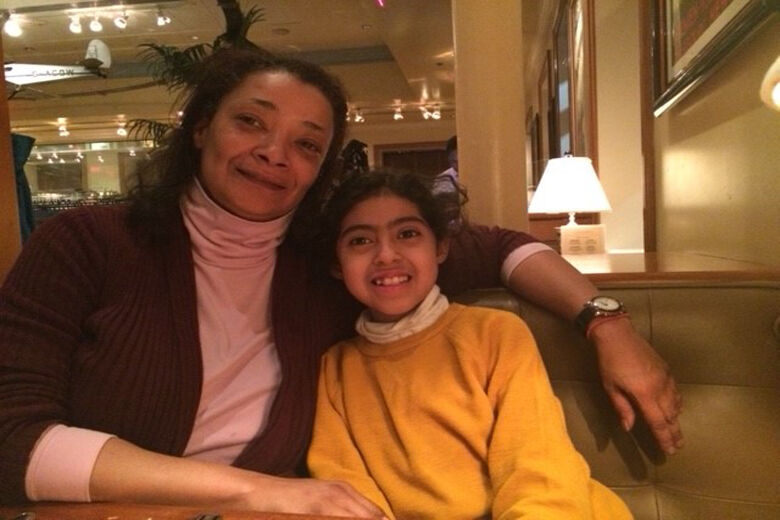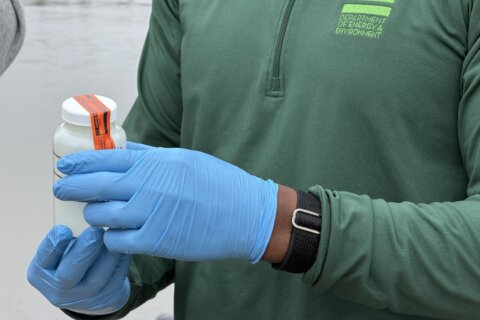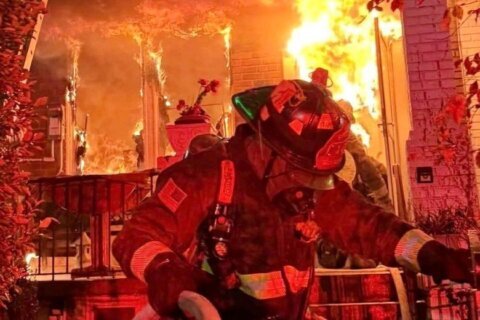
A D.C. ambulance took more than 20 minutes to arrive at a Northeast home, where a woman was suffering from a fatal heart attack, after paramedics were directed to the wrong quadrant of the city.

Nearly six months after Billie Shepperd’s daughter, Sheila Shepperd, died, the mother has some answers to her question of what took so long.
Dispatches from D.C.’s Office of Communications, which runs the city’s 911 response, confirmed that paramedics were incorrectly sent to the 400 block of Oglethorpe Street Northwest.
“My granddaughter did say Northeast. She said it twice,” said Billie Shepperd after hearing the audio sent to her by independent reporter Dave Statter through a Freedom of Information request from an industry publication.
In one tape, someone from Engine 11 calls in to ask dispatchers, “Can you confirm the address … we are at [address redacted] and the caller said this is not the proper address.”
“OK, standby. Checking for a correct location,” the dispatcher responds.
Moments later, a dispatcher issues a correction, sending out a call for other engines to respond to the same street address in Northeast D.C.
The man speaking from Engine 11 questions the call, advising dispatchers that his location is close to the correct address; in fact, it’s 1.3 miles away.
“I’m going to be closer than Engine 26. Continue me on the run on the Northeast side,” he said over the radio.
Meanwhile, Billie Shepperd’s granddaughter, who discovered her mother had collapsed on the floor of their home, was the only person there to help. The teen at the time was home because D.C. Public School are virtual.
“This has been the most devastating thing in my life. I will never get over it,” Billie Shepperd said.
“To have a 13-year-old child trying to do what it entails, you know, chest pumps and all of that. And the child saying, ‘When will they be here?’ ‘They should be there shortly, they’re on their way.’ And to go through that for 30 minutes,” she said, reliving the moment she overheard as her granddaughter had called her from another phone.
The industry publication, which obtained the 911 dispatch calls with Sheila Shepperd’s daughter, lays out a timeline that is less than 30 minutes long:
The anxious caller reported her mom still not breathing about 18 minutes into the call as CPR continued. Sirens became audible seconds later. The daughter said she heard the paramedics. At about the recording’s 21-minute mark, one paramedic who had come inside asked, ‘How long has she been out?’
The delay raised inescapable questions in Billie Shepperd’s mind. And she said her granddaughter is traumatized by her efforts to save her mom. “One doesn’t know, but 30 minutes? It’s possible that it could have gone the other way,” Billie Shepperd said.
Sheila Shepperd passed away hours later at Washington Hospital Center. Her mom doesn’t know of any preexisting conditions she had that would have caused the cardiac arrest.
Since her death on June 5, family members of the late 59-year-old equal opportunity specialist at the Department of Agriculture have not heard from anyone with the D.C. government.
“I think it’s dreadful. Even in the pandemic, that no one from the city would reach out and, you know, just come clean … For these agencies to not have the transparency, and then for me, a week or two later, to start getting in a bill that’s close to $800 for an ambulance that you feel killed your kid? It’s a horrible situation,” Billie Shepperd told WTOP.
“I really would like to say something to Muriel Bowser. Her parents lived across the street from my daughter’s home. It’s fine to plant all the pretty trees, but we need more in this city.
“We need transparency. We need something to change.”
Orphaned by her mother’s death, Sheila Shepperd’s daughter went to live with family members in Canada. Her grandmother is left to pick up the pieces and handle the estate.
“I feel her loss almost every day. And, often, within a day. I cannot even count the times, whether I see her walking up the steps or, oh Lord, there isn’t a room of this house that doesn’t have something of her or something that she has done for me. We were just so, so close,” Billie Shepperd said.
WTOP reached out to D.C.’s Office of Unified Communications and waited an hour past the agreed-upon deadline to publish the story without comment.
This is not the first complaint against the D.C.’s 911 center. In October, it reportedly took 14 minutes before D.C Fire and EMS crews were dispatched to help more than 100 people stranded on an uncoupled Metro train.
In September, Statter reported that D.C. Fire and EMS crews had responded more than three dozen times since December to wrong or nonexistent addresses, and that number drawfed the 21 instances of “blown addresses” reported in the past five years to the D.C. Council’s Judiciary and Public Safety Committee during its yearly oversight of the OUC’s performance.
At the time, the head of the emergency call center told WTOP “there is not a systematic problem” with the 911 system.
Those comments came just week before the Office of the D.C. Auditor said it would investigate the effectiveness of the 911 center.
WTOP’s Neal Augenstein, Teddy Gelman and Colleen Kelleher contributed to this report.








